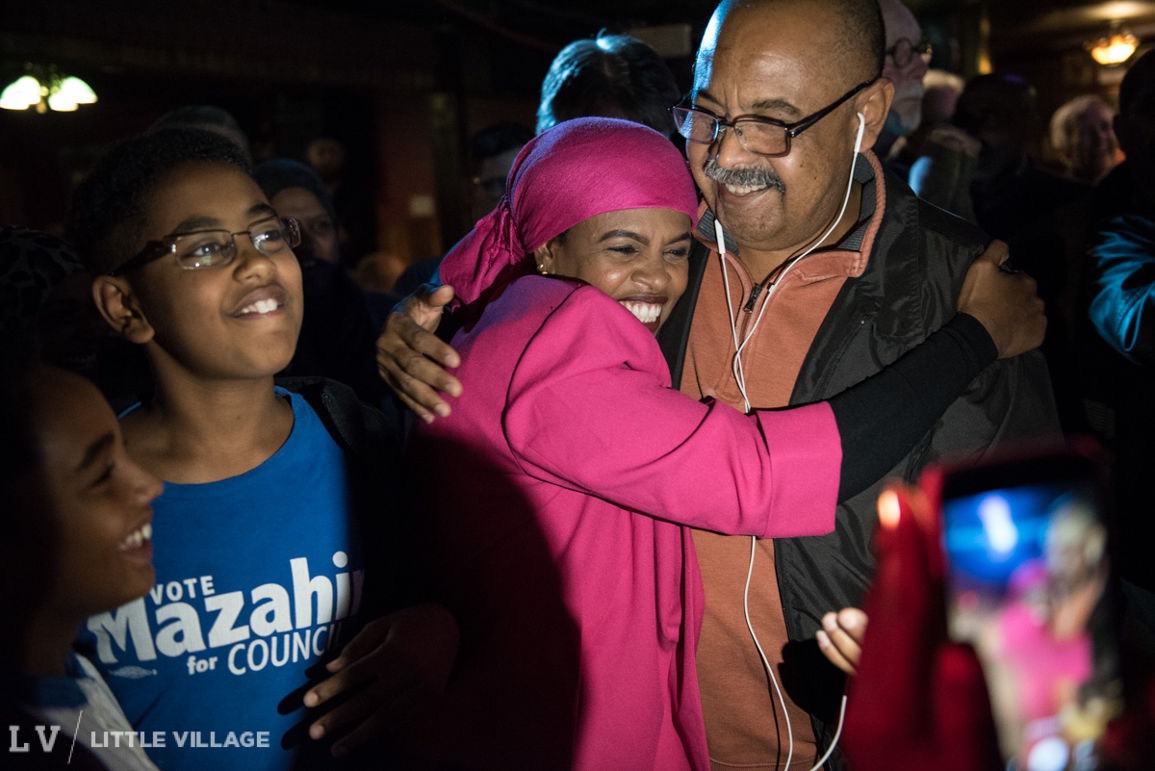
The election on 7 November 2017 was an unforgettable day for America. This particular election day when US voters cast their ballots for state and city governors, marked a huge turning point in today’s fractured American politics. In the midst of ongoing national turmoil the states of Virginia, Minneapolis, New Jersey, Montana, and New Hampshire saw historic gains for women, people of colour and LGBTQ+ candidates.
I had the opportunity to speak to the first Sudanese-American woman elected to office as the at-large councillor in Iowa City, located in the east of the largely red (Republican-dominated) state of Iowa. Mazahir Salih, the first Muslim American woman elected to Iowa City’s office and the first Sudanese American in public office in all of America, earned over 70 percent of votes in her city.
While the referendum may not have been deemed globally newsworthy, Salih’s platform issues shed light on a raft of socioeconomic disadvantages that have hit immigrants and minority groups the hardest. Upon gaining US citizenship in the early 2000s, Salih lived in Virginia for 15 years doing “low-wage jobs at McDonald’s and other fast-food restaurants” despite having a degree in civil engineering from Sudan.
“We never stopped learning and finding jobs that paid well, and began recognising our rights and responsibilities in our new country”
Salih tells me: “When I arrived, I came with a university degree but you know, there were a lot of language and cultural barriers. So I had to start over”. At the time, Virginia and many Southern states alike experienced an influx of immigrants from all around the world, and the Bush administration’s immigration policy was comparatively more lenient and inclusive than is today.
After honing her communication skills in English and applying for jobs, Salih found herself more involved with immigrants than ever. “I started to help newcomers resettle in this country. Life was tough with all these barriers. But we never stopped learning, finding jobs that paid well and began recognizing our own rights and responsibilities in our new country,” Salih told me. Initially, Salih participated in grassroots organising with the Sudanese community in her neighborhood. Within a short time, more immigrant groups melted into the same cause, aligning themselves with the mission to help new immigrants navigate their new life in the US.
“The problems faced by people who migrate to the US cannot be addressed as single issues, existing in disconnected silos”
When Salih moved to Iowa City, she decided to take her passion for advocacy work and community organising a step further. In 2012 she co-founded the Eastern Iowa Center for Worker Justice. In the early stages, Salih and fellow immigrant advocates making up at least 18 nationalities called it the “Immigrant Voices Project”. The centre began through the coming together of like-minded, social justice advocates, and as a team they investigated key social problems in Iowa City. The general consensus was that “people who carried an immigration or refugee status may have led different lives but actually had a lot of issues in common”. Adding racial discrimination and disputes with law enforcement, landlords and employers into the mix made it clear that the problems faced by people who migrate to the US cannot be addressed as single issues, existing in disconnected silos.
“When we connected the dots and saw these issues intersecting with low-income America-born residents as well, we changed the name [to Center for Worker Justice]”, Salih said. Earning both state and national recognition, the entire organisation’s membership identify as low-wage workers who grapple with labour prejudices spanning race and immigration status. So far, they have been fighting the good fight to raise minimum wages and developing affordable housing plans. Utilising Salih’s civil engineer expertise, the Centre is slated to have plans to expand the local transit system.
“Due to the “Trump effect”, Salih had witnessed an uptick in xenophobic and discriminatory comments”
I also spoke with Salih about anti-blackness and Islamophobia that she had encountered in her advocacy work. Salih recalled that in her first few months in America she had experienced little to no hate crimes and racism targeting Sudanese immigrants in the South. But due to the “Trump effect”, she had witnessed an uptick in xenophobic and discriminatory comments. Salih remarks: “After Trump was elected, though I never experienced anything so far, I’m aware that people have been hurled racist slurs in Iowa City. A friend of mine from Sudan received a note at her doorstep that read ‘go back to your country’. In schools, a couple days after the election many kids received derogatory comments from their own classmates.”
The role of Center for Worker Justice in the post-Trump era in dealing with such accounts of racist, Islamophobic rhetoric was to collect these voices and deliver them to policy-makers and government officials in the council to prohibit acts of discrimination against immigrants, which violates the statute of the Iowa Civil Rights Act. “I felt the pain of being both an immigrant and low-wage worker because I was like that once. I used to feel what they feel now,” Salih said.
“Powerful black women advocates like Salih can inspire and offer a model to black Muslim immigrant women who might also want to contribute to policy-making”
In response to Trump being elected the 45th President of the United States of America, Salih campaigned for public office in order to set in place an effective channel connecting the general public with elected officials. “I think dealing with a great number of people from different levels of education and income, low-wage workers, elected officials all in Iowa got me thinking about how everyone is extremely disconnected from one another,” Salih explains. She believes that building bridges between people of different socioeconomic status thaws frosty relationships between low-income residents and public officials, particularly law enforcement and governors.
For Salih, her victory is a wake-up call to young Black Muslim women, especially those of immigrant descent who can support each other in the face of travel bans or state-sponsored Islamophobia. In fact, I believe that powerful black women advocates like Salih who has clear goals for what she wants to achieve in her community can inspire and offer a model to black Muslim immigrant women who might also want to contribute to policy-making.
Salih’s word of advice: “I would encourage all young Muslim girls to start as volunteers, learning how the system works and how the government works. By just engaging with the public society, having indefinitely recognised your right and responsibility to your country, every black Muslim woman will be at the forefront to fight for their rights in this country.”









